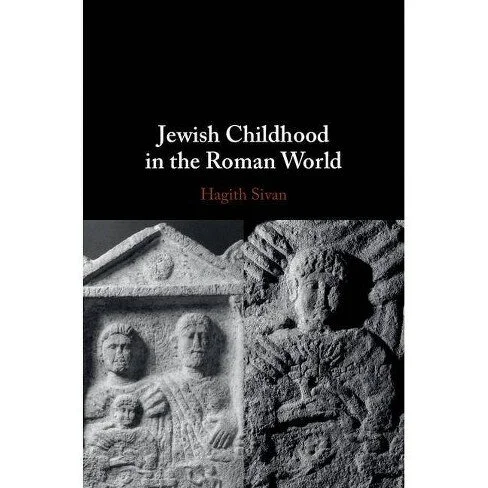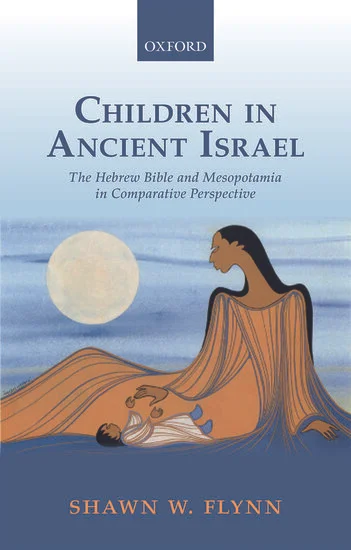The curators of the exhibit and authors of this catalogue resist the urge to classify objects by these two great empires (“Roman” or “Parthian”) and, instead shift the focus to the local vicinity they reflect.
Read MoreReligious Studies and Rabbinics
An exemplary conference volume for scholars of rabbinics, religious studies, and all those curious about these fields of study.
Read MoreBook Note | Votive Body Parts in Greek and Roman Religion
As some of the most numerous, widespread, and striking objects associated with the practice of religion in the ancient world, anatomical votives have appeared in many studies of the classical and late antique Mediterranean.
Read MoreBook Note | Jewish Childhood in the Roman World
Jewish Childhood in the Roman World provides a comprehensive review of the Palestinian rabbinic literature on the many facets of childhood.
Read MoreBook Note | The Rise of Coptic: Egyptian Versus Greek in Late Antiquity
Fournet’s The Rise of Coptic is a substantial and accessible contribution to the ongoing discussion of bilingualism and multilingualism in the ancient world.
Read MoreBook Note | Matthew Within Sectarian Judaism
John Kampen has built a meritorious career in the study of the Dead Sea Scrolls and the New Testament. In this book he makes an argument in which he deftly weaves together his expertise in each so as to study the gospel of Matthew as the work of a Jewish sect.
Read MoreBook Note | The Birth of Christian History
Can re-imagining the genre of Gospel literature uncover overlooked connections between memory, identity, and conceptions of time in early Christianity?
Read MoreBook Note | Outsider Designations and Boundary Construction in the New Testament
Trebilco sets out to explore how early Christians used outsider designations for boundary maintenance and in-group identity construction.
Read MoreBook Note | The Ways That Often Parted
This collection of essays reflects a core assumption that Marcus shares with his scholarly contemporaries: the parting between Christianity and Judaism did not happen at one definite moment, but occurred in different places and at different times in different communities.
Read MoreBook Note | Christianizing Egypt: Syncretism and Local Worlds in Late Antiquity
In Christianizing Egypt, David Frankfurter continues this trend. He examines by what standards scholars should dissect the process of Christian conversion in Egypt and investigate the continued presence of traditional Egyptian religious behaviors and practices.
Read MoreBook Note | The Apocalypse of Empire: Imperial Eschatology in Late Antiquity and Early Islam
Shoemaker’s study is a contribution to a rapidly expanding body of scholarship that locates Islam firmly within the contexts of late antiquity. He points to imperial eschatology as the crucial late ancient discourse for the development of early Islam.
Read MoreBook Note | Children in Ancient Israel
Recent studies on the legal, social, and religious status of children are part of this development. Reconstructing the voices and lived realities of children and, indeed, other groups largely overlooked by biblical writers requires scholars to utilize different strategies in interpreting the extant evidence.
Read MoreBook Note | The Bible and Feminism: Remapping the Field
Like so many feminist works on the Bible, the concern in this volume is not simply ancient gender politics, but also modern ones; as the terrain of the field shifts, so must our maps.
Read MoreBook Note | Purity, Community, and Ritual in Early Christian Literature
For early Christians, questions of embodiment, ethics, and the construction of communal boundaries turned around (im)purity discourse as a central node.
Read MoreBook Note | The Merovingian Kingdoms and the Mediterranean World
Merovingian Kingdoms makes a cogent argument about the place of post-Roman Europe in the world of late antiquity: though no longer under the aegis of the Empire, it remained well-integrated within what could still be described as a Mediterranean-wide Roman cultural sphere.
Read MoreBook Note | Priests in Exile: The History of the Temple of Onias and Its Community in the Hellenistic Period
Because of its breadth, Priests in Exile is bound to become essential reading, not only for those interested in Oniad history, but also for anyone interested in Egyptian Judaism or Hellenistic-Jewish literature.
Read MoreBook Note | Divine Bodies: Resurrecting Perfection in the New Testament and Early Christianity
Only by carefully reading passages that might run counter to our expectations, Moss concludes, can we rediscover why the resurrected body matters to our identity.
Read MoreBook Note | Paul: The Pagans’ Apostle
How does Paul come to understand himself as a messenger of Jesus? How did that message change in those hazy decades between the life of the historical Jesus and Paul’s co-writings?
Read MoreBook Note | Ethics in Ancient Israel
James Nati reviews Barton’s Ethics in Ancient Israel: “Barton’s work is thus meant not at offering clarity for believers as they try to live more “biblically,” but rather to argue that ancient Israelite thinkers deserve a seat at the table among other ethical thinkers throughout history.”
Read MoreBook Note | In the Image of Origen
To whom are we entrusting ourselves when we follow a particular instructor? To what extent should our will be constrained by a teacher, friend, rabbi, abba? Or is it an image of these figures? What do we make of teaching practices that restrain habits of thinking and opinion? What is the role of Tradition?
Read More![Aedicula for Aglibol and Malakbel (236 CE) [Image courtesy of the author].](https://images.squarespace-cdn.com/content/v1/5449167fe4b078c86b41f810/1592830757350-KEIXL26MN5K4SZBJU9ER/aedicula-palmyrene-wbe.jpg)

![Roman Votive Offering [Wikimedia Commons]](https://images.squarespace-cdn.com/content/v1/5449167fe4b078c86b41f810/1591881576993-7PMZKLLNAKQZ8CYMIP83/Three_Roman_votive_offering_representing_faces_Wellcome_L0036388.jpg)

![St. Menas with two camels, Pilgrim flask found around Alexandria Egypt (ca. 6th-7th c. CE) [Wikimedia]](https://images.squarespace-cdn.com/content/v1/5449167fe4b078c86b41f810/1589226784624-E7CWVU5C4KCDWB3IZHM7/Pilgrim_flask_St._Menas_Louvre_MN1469.jpg)

![Joseph Mallord William Turner, Rome from the Vatican (1820) Tate Modern [WikiArt]](https://images.squarespace-cdn.com/content/v1/5449167fe4b078c86b41f810/1586094608247-LSTOEXDA5P9B02S5JC8F/rome-from-the-vatican.jpg%21Large.jpg)
![Piet Mondriaan, Composition with Red, Yellow, Blue, and Black (1921) Kunstmuseum Den Haag [Wikimedia]](https://images.squarespace-cdn.com/content/v1/5449167fe4b078c86b41f810/1585573389657-QX85KI6N3EGVRARW6V6T/Piet_Mondriaan%2C_1921_-_Composition_en_rouge%2C_jaune%2C_bleu_et_noir.jpg)
![Georges Braque, Road near L'Estaque (1908) The Museum of Modern Art [Artstor]](https://images.squarespace-cdn.com/content/v1/5449167fe4b078c86b41f810/1572645695040-YYJ2SKRLY3MUVT2MITRX/AMOMA_10312310398.jpg)










